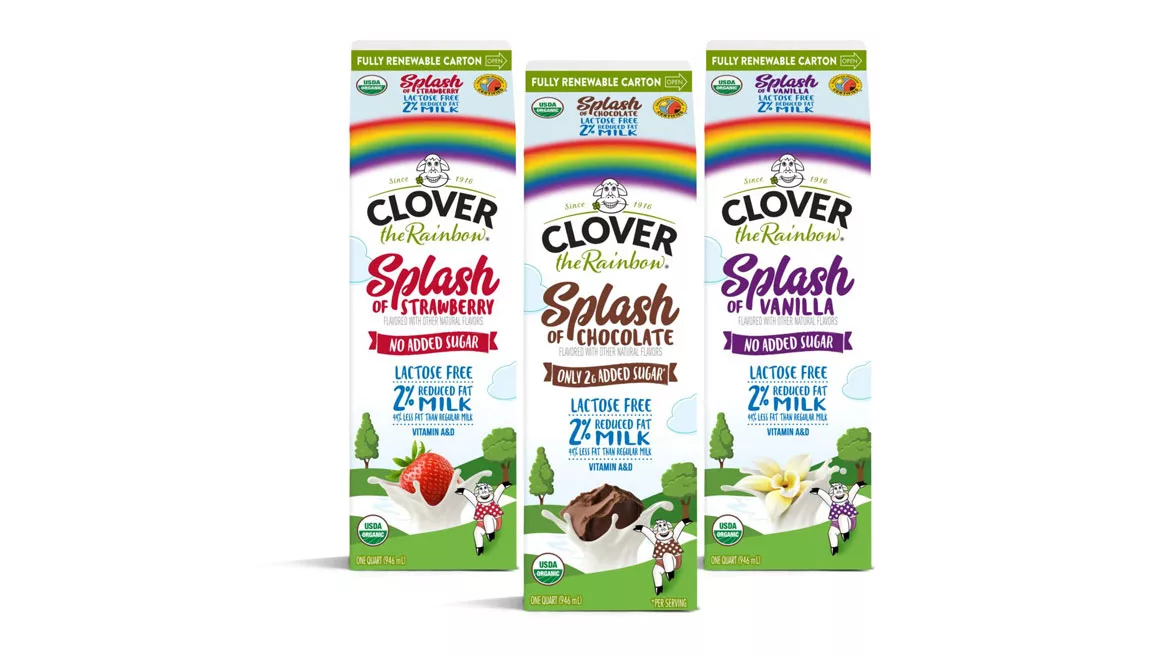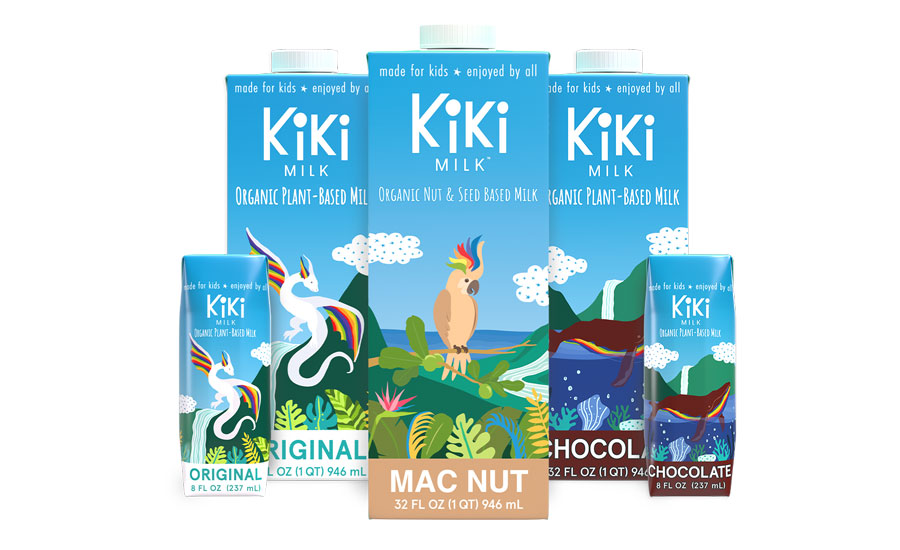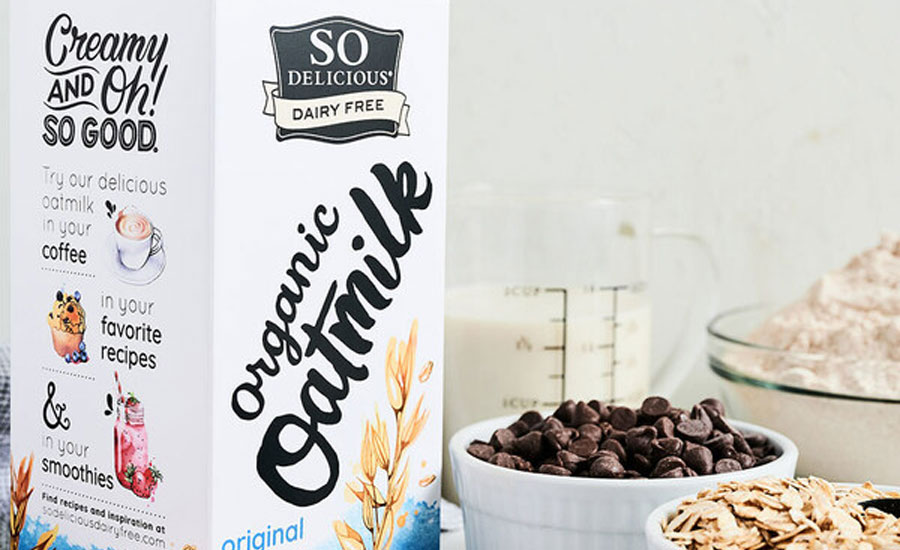2023 State of the Beverage Industry | Inflation continues to impact the dairy drink, alternative categories
Organic, flavored milks spur growth for dairy drinks

Image courtesy of Clover Sonoma
As the milk and dairy alternatives market has been impacted by inflation, experts note that dairy milk also continues to face competition from dairy alternatives, which have become increasingly available on the market.
Anne Scott Livingston, research analyst at Euromonitor International, Chicago, explained in Beverage Industry’s November 2022 issue that dairy producers were forced to increase their milk prices due to a jump in input costs, which “have significantly strained category margins.”
“Price hikes in a category already struggling with lowered demand put a strain on sales in both 2021 and 2022,” Livingston noted. “After a year of strong retail sales in 2020, consumer behavior normalized somewhat in 2021, and retail sales of milk declined. The category also continues to face competition from dairy alternatives, which have become increasingly available in recent years.”
Sydney Olson, consumer insights analyst of food and drink at Chicago-based Mintel, suggested in Beverage Industry's November 2022 issue, that dairy milk sales will grow 2.3% by the end of 2022.
The increase would put dairy milk sales at $16.7 billion, “just 1% shy” of the high in 2020 during the pandemic, Olson explained. Although growth in 2022 was in part due to elevated price points and inflation-driven shopping behavior, “improving perceptions of health are also contributing,” she noted.
According to data from Chicago-based Circana, the overall dairy milk category saw a sales increase of 6.8%, totaling $15.7 billion in total U.S. multi-outlets with convenience stores for the 52 weeks ending May 21. Although dollar sales were up, Circana data show that unit sales were down 3.3% for the same time period.
Euromonitor’s Livingston, pointed to flavored dairy milk as driving growth for the milk category, with “strong retail sales growth in 2021.”
“This growth is partly attributable to high levels of innovation in the category, with established milk brands rolling out new varieties and new brands entering the market,” Livingston said in Beverage Industry’s November 2022 issue. “Much of this innovation is focused on health and wellness, with consumers seeking out attributes such as organic, clean label or ultra-filtered.”
Petaluma, Calif.-based Clover Sonoma, a third-generation family-owned and -operated dairy and Certified B Corp, recently announced its expansion into Southern California with the launch of Clover the Rainbow Milk with a Splash of Flavor.
|
|
DOLLAR SALES | % CHANGE vs PRIOR YEAR | MARKET SHARE | % CHANGE vs PRIOR YEAR | |
| 1 | Blue Diamond | $602,486,870 | 8.8 | 38.7 | 1.7 |
| 2 | Silk | $500,587,711 | -4 | 31.9 | -2.6 |
| 3 | Private Label | $304,676,288 | 12.1 | 19.4 | 1.4 |
| 4 | Califia Farms | $103,338,494 | 3 | 6.6 | 0.1 |
| 5 | Simply | $20,935,297 | -37.1 | 1.3 | -0.9 |
|
|
Category Total* | $1,569,487,870 | 3.9 | 100 | --- |
*Includes brands not listed
Source: Circana, Chicago. Total U.S. supermarkets, drug stores, gas and convenience stores, mass merchandisers, military commissaries, and select club and dollar retail chains for the 52 weeks ending May 21.
Designed for kids and kids at heart, the USDA organic milks are available in three classic flavors — Chocolate, Vanilla and Strawberry — and feature no or low added sugar, the company notes. Made with 100% USDA organic, 2% lactose-free milk, the new dairy products are a good source of calcium and protein, do not contain any artificial flavors or sweeteners, and are American Humane Certified, it says.
“For more than 100 years, Clover Sonoma has delivered the highest-quality dairy products that are critical to nourishing the well-being of families and kids,” said Meg Sutula, vice president of marketing at Clover Sonoma, in a statement. “The launch of Clover the Rainbow Milk with a Splash of Flavor brings whole nutrition to the entire family in a delicious way. The fun and classic flavors paired with the goodness of organic, locally sourced, lactose free milk will help support a well-balanced diet without having to worry about overloading on added sugar or artificial sweeteners.”
When it comes to non-dairy options’ proliferation on shelves, experts note that diverse dairy alternatives such as, almond, cashew, oat milk, and more, are what is driving that market.
“Oat milk and other non-dairy drinks (comprising more recent non-dairy innovations such as plant-based blends, macadamia milk, hazelnut milk, etc.) are the only segments to see growth in 2022,” Mintel’s Olson noted in Beverage Industry’s November 2022 issue. “Even amid higher inflationary grocery spending and inherently higher prices of non-dairy milks, all other segments experienced their second consecutive year of decline following pandemic highs.”

Euromonitor’s Livingston shared similar sentiments regarding the market-driver of alternative options.
“Although almond milk remains the most popular option among plant-based alternatives, oat milk has recorded impressive growth and quickly gained a large amount of share,” she said in Beverage Industry’s November 2022 issue. “Soy milk has continued to decline, and alternatives such as rice milk and coconut milk have lost share, as well as many consumers’ shift toward almond and oat. Other alternatives have started to gain popularity as well, such as pea-based milks.”
According to data from Circana, the overall plant-based milk category saw a sales increase of 8.6%, totaling $2.5 billion for the 52 weeks ending May 21. However, Circana data shows unit sales down 5.2% for the same period.
Of the plant-based milk category, the refrigerated almond milk segment saw a sales increase of 3.9%, totaling $1.5 billion for the 52 weeks ending May 21. Although dollar sales were up, Circana data show that unit sales were down 8.1% during that same time period.
Meanwhile, the refrigerated oat milk segment saw a sales increase of 23.5%, reaching $551 million, with unit sales up 6.6% for the 52 weeks ending May 21, Circana data shows.
|
|
DOLLAR SALES | % CHANGE vs PRIOR YEAR | MARKET SHARE | % CHANGE vs PRIOR YEAR | |
| 1 | Planet Oat | $193,895,717 | 19.4 | 35.2 | 1.2 |
| 2 | Oatly | $123,399,323 | 23.1 | 22.4 | -0.1 |
| 3 | Chobani | $106,951,741 | 34.7 | 19.4 | 1.6 |
| 4 | Silk | $55,089,104 | 25.4 | 10 | 0.2 |
| 5 | Califia Farms | $42,701,731 | 15.8 | 7.8 | -0.5 |
|
|
Category Total* | $551,308,099 | 23.5 | 100 | --- |
*Includes brands not listed
Source: Circana, Chicago. Total U.S. supermarkets, drug stores, gas and convenience stores, mass merchandisers, military commissaries, and select club and dollar retail chains for the 52 weeks ending May 21.
John Crawford, vice president of client insights of dairy at Circana, noted in Beverage Industry’s November 2022 issue, that oat milk is the leading alternative driving the market, while almond, soy and coconut milks “struggle.”
“Almond is up slightly in dollars but down in volume,” Crawford said. “Soy has been declining for many years, first getting cannibalized by almond, and now by oat.”
In April, So Delicious Dairy Free, a brand Danone North America, Broomfield, Colo., announced its making its first foray into the oat milk category with the launch of its new Organic Oatmilk.
“As leaders in the dairy-free space, we at So Delicious are always listening to consumers and striving to deliver what they are looking for. Oat milk is a favorite for both dairy-free veterans and people new to plant-based beverages, and we know that the interest in oat milk isn’t going anywhere anytime soon,” said Olivia Sanchez, vice president of marketing, plant based beverages for Danone North America, in a statement. “With Organic Oatmilk, our first oat milk beverage innovation, we are proud to offer fans a new great-tasting organic option to enjoy in their daily routines.”

As today’s consumers are becoming increasingly health conscious, experts note that further factors like sustainability, as well as having a healthy diet are important to consumers and influence shopping habits.
Euromonitor’s Livingston noted in Beverage Industry’s November 2022 issue, that sustainability trends can further determine which types of milk, whether it be dairy or an alternative, are most popular among consumers.
As sustainability initiatives gain importance with consumers, many plant-based milk companies especially are looking at “increasing efficiency while reducing their carbon footprint,” Livingston explained. “Companies that engage in sustainability initiatives such as these are more likely to attract consumer interest as many seek to reduce their environmental impact.”
Citing Mintel’s March 2022 Global Consumer report, Olson noted in Beverage Industry’s November 2022 issue, that almost half of adults in the United States think a healthy diet should consist of plant and animal proteins, “proving there is room for both dairy and non-dairy milk brands to contribute to consumers’ current healthy intentions.
“However, because of rising concerns and confusion surrounding non-dairy processing and ingredients, brands should consider leading with the inherent ingredients and benefit of plants and of specific base types, rather than attempting to artificially replicate the taste and nutritional profile of dairy milk,” Olson concluded.
Looking for a reprint of this article?
From high-res PDFs to custom plaques, order your copy today!







